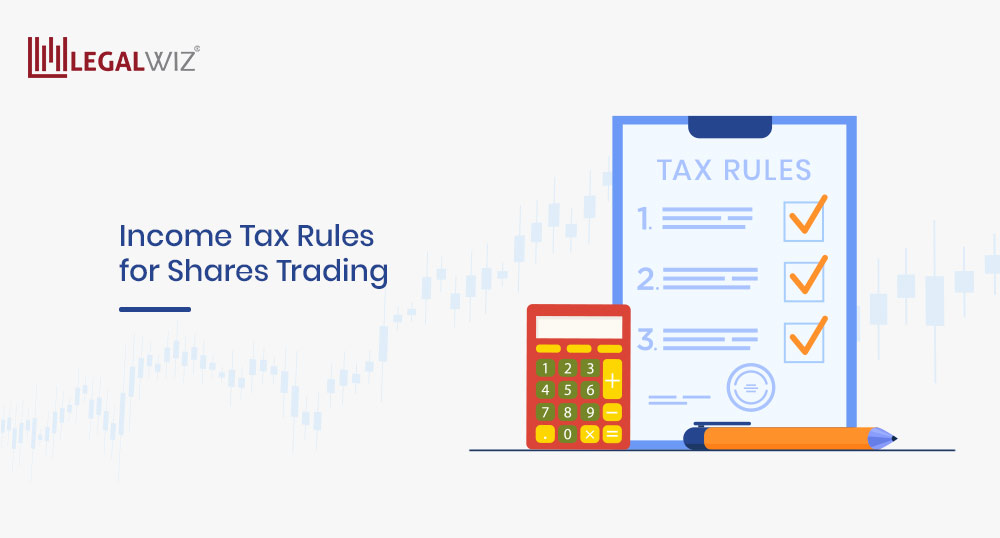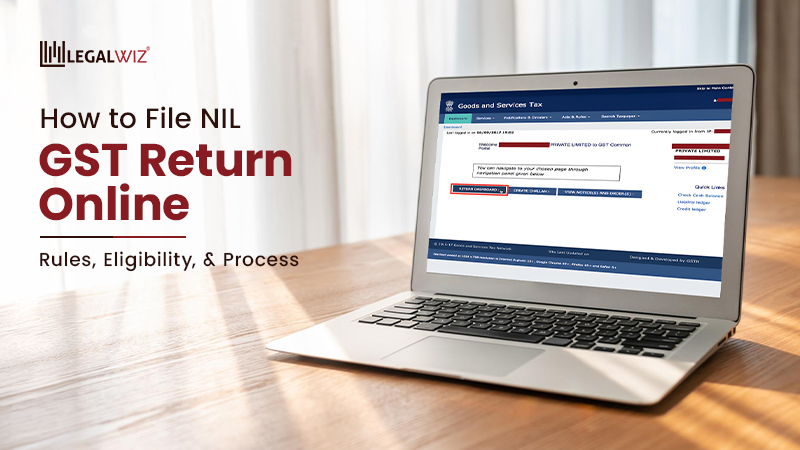Understanding the Income Tax Rules for Equity Shares Trading
We are both aware that revenue from salaries, residential properties, and businesses is taxable. However, what about income produced by the selling or purchase of shares? Many homemakers and retirees earn money by engaging in the equity shares trading that involves buying and selling stocks but are uncertain how this revenue is taxable. Income/Loss from the selling of stock securities is classified as ‘Capital Gains.’
1. Gains from Equity Shares
a. Interesting short-term capital losses
Equity shares available on a stock exchange will be exchanged within one year of acquisition. If bonds are traded at a higher price than the selling price, the purchaser profits for a limited time. Value x Accumulated capital gain (less) cost savings on sale (less) Estimated selling price.
b. Long-term capital gains and losses
If equity shares traded on a stock market are sold within a year of acquisition, the seller can realize a long-term capital gain or loss. Before enacting Budget 2018, Section 10 exempted long-term capital gains on the selling of share capital or equity-oriented units of mutual funds (38). According to the 2018 Financial Budget, if a seller earns a long-term capital gain of more than Rs. 1 lakh on the selling of equity shares or equity-oriented units of a mutual fund, the gain is subject to 10% long-term capital gains tax. Additionally, the seller would be excluded from the indexation value. Transfers made by or on 1 April 2018 are subject to these requirements.
Also Read: Issue of Bonus Shares to the Shareholders
2. Taxation of Gains from Equity Shares
a. Tax on short-term capital gains
Passive income from real estate is taxed at a rate of 15 percent. I wonder if your tax rate is 10%, 20%, or 30%. Regardless of the tax bracket, a 15% capital gains tax advantage of investing money in the short term. Besides, if your taxable income excluding gains is Rs. 2.5 lakh, then you can compensate for the remaining short-term and long-term losses. net capital gains will be retained at a rate of 15% and then taxed at a rate of 4%.
b. Tax on long-term capital gains
Long-term capital gains on equity shares listed on a stock exchange are tax-free up to Rs 1 lakh. According to budget 2018 amendments, long-term capital gains of more than Rs 1 lakh, mainly on the selling of equity securities or equity-oriented units of a mutual fund, would be taxed at 10%. The seller would lose the indexation profit. Transfers made on or after 1 April 2018 are subject to these requirements.
3. Loss from Equity Shares
a. Short-term capital loss
Any temporary capital loss incurred from the selling of shares can be offset by any other temporary or long-term capital asset gains derived from any other capital asset’s sale. You can also set it off if only any of the losses aren’t deducted. It can remain on the taxes for 8 years in this case or affect any short-term or long-term capital gains earned during that period. Notably, only taxpayers who have completed their returns on time will be entitled to carry forward any losses. Even if your net income in the same year is less than the minimum taxable income, it is mandatory to file an Income Tax Return.
b. Long-term capital loss
Until Budget 2018, long-term capital losses on equity investments were known to be a “dead loss” – they cannot be adjusted or carried forward. This is because long-term capital gains on listed equity securities were previously excluded from taxation. Likewise, damages incurred as a result of them could not be set off or carried forward. After the Budget 2018 amended the legislation to tax gains over Rs 1 lakh at a rate of 10%, the government also announced that losses on listed equity shares, mutual funds, and similar investments would be permitted to be carried forward.
The income tax department explained, among other things, in its FAQs dated 4 February 2018 that long-term capital losses arising from transfers made on or after 1 April 2018 would be permitted to be set-off and carried forward in compliance with existing Act provisions. As a result, long-term capital losses can be offset against other long-term capital gains, and unabsorbed long-term capital loss can be carried forward to the following eight years for offset against long-term gains.
Also Read: 5 Mandatory Compliances required to start Trading Business
4. Securities Transaction Tax (STT)
For the stock that is traded on a stock exchange, STT is applicable. Only stocks which are traded on a stock exchange have these tax consequences. Sales/purchases on an exchange are affected by STT. These tax consequences only apply to stocks on which STT is charged.
Conclusion
In all such situations, the essence of the transaction (capital gains or business income) would be determined using the principle of significant trading operation’ and the taxpayer’s intention to hold shares as stock or ‘investment.’ The preceding guidance would avert needless interrogation by Assessing Officers about income classification. How to proceed with the selling of unlisted shares in this instance? However, the department has expressed its position on selling unlisted securities for which there is no structured market for trading. Income derived from the exchange of unlisted shares must be taxed as capital gain, regardless of the holding duration, to prevent disputes/litigation and ensure a consistent approach. (According to CBDT circular Folio No.225/12/2016/ITA.1I dated May 2, 2016 ).

Benazir Shaikh
Benazir Shaikh is a company secretary pursuing her Internship at LegalWiz.in. She prospects to make a career in Legal & Secretarial field.







